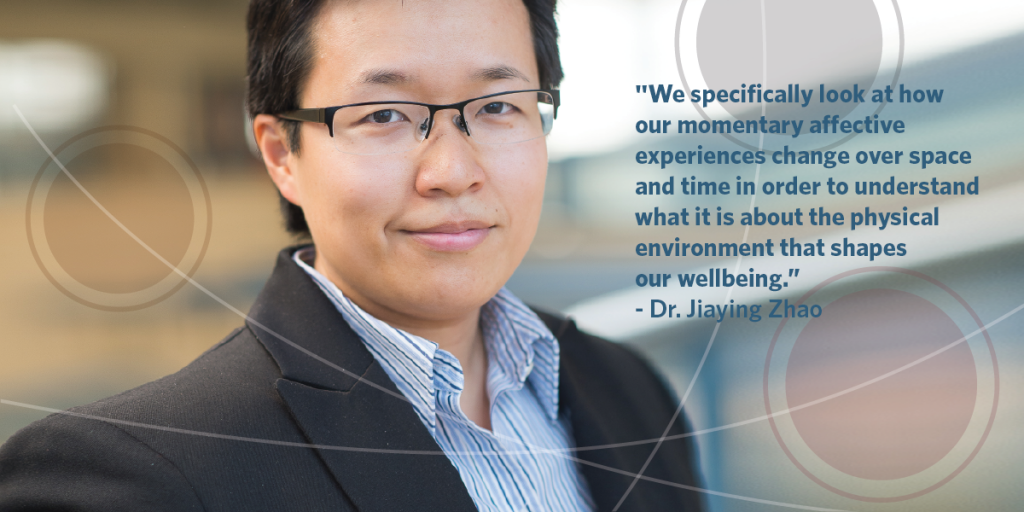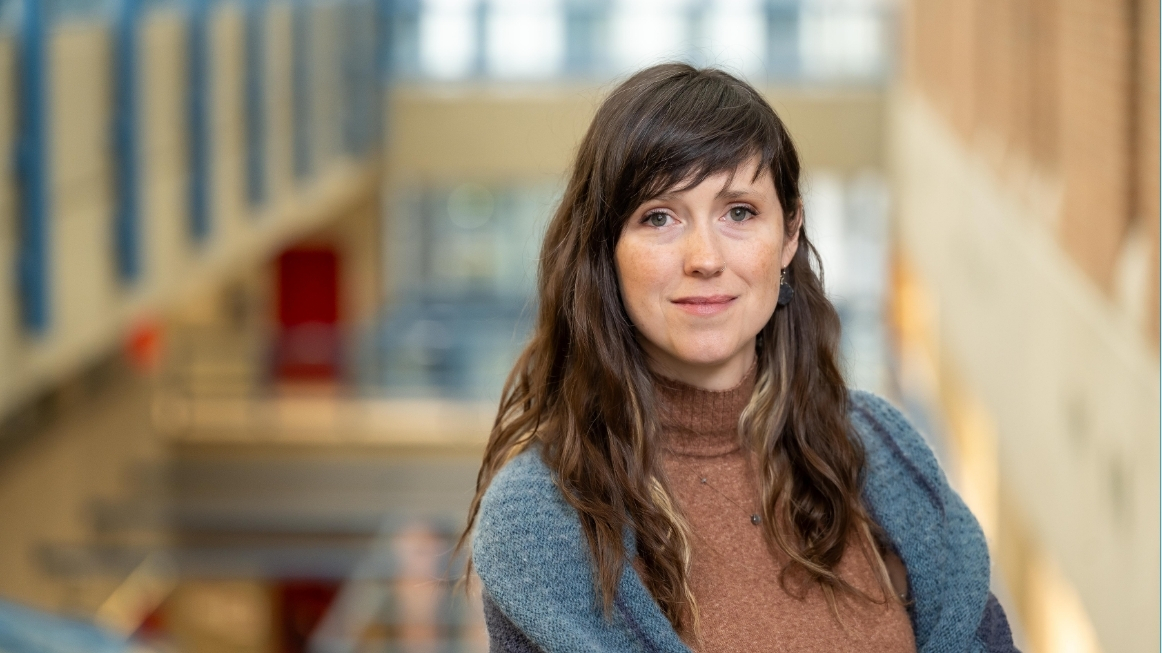
MAP TO HAPPINESS
Is the state of ‘happiness’ situational, locational or a meld of something in between?
When you’re in what behavioural scientists such as Dr. Jiaying Zhao calls an ‘immediate affective experience’, how much of it is caused by what’s within you – your internal mental state? How much is triggered by what’s around you, the immediate environment? Do glorious surroundings create spontaneous bursts of happiness?
These are just some of the questions Dr. Jiaying Zhao is exploring in her current research. Zhao is a Canada Research Chair and assistant professor jointly appointed in UBC Vancouver’s Department of Psychology and Institute for Resources, Environment and Sustainability. While first exploring the campus, she stepped into the Rose Garden and “was overwhelmed by joy” by the distant vista of sea and mountains: “The emotions I experienced were very powerful and ever since then, I’m determined to find out exactly how the environment influences our wellbeing.”
Subjective wellbeing is seen as a balanced mix of elements: career, income, health, relationships and other factors tangible and intangible. Zhao says she realized the effect of one’s immediate physical environments hasn’t been sufficiently explored.
With support from the UBC Behavioural Sustainability Group (a consortium of UBC Psychology, UBC Sustainability Initiative and the Institute for Resources, Environment and Sustainability), engagement with the University Neighbhourhood Association and collaboration with the Campus and Community Planning SEEDS program, and funded by a Hampton Research Grant, in September 2014 Zhao launched the year-long Project Happiness research vehicle.
Its goal: discover the where, when and why people are happiest on the UBC campuses.
“This project builds upon past studies that show exposure to nature improves health and life satisfaction,” explains Zhao. “Here we specifically look at how our momentary affective experiences change over space and time in order to understand what it is about the physical environment that shapes our wellbeing.”
Via the Happiness Project’s real-time, online interactive survey developed by UBC-based startup tech firm Structured Reports, and thanks to the ubiquitous ‘device’ carried by almost everyone (and the chance to win prizes), as of mid-April about 3,000 responses were sent in and colourfully plotted at www.ubc-happiness.com.
Read the full story in Connected by Commitment: The University of British Columbia’s (UBC) 2014/15 Annual Report


